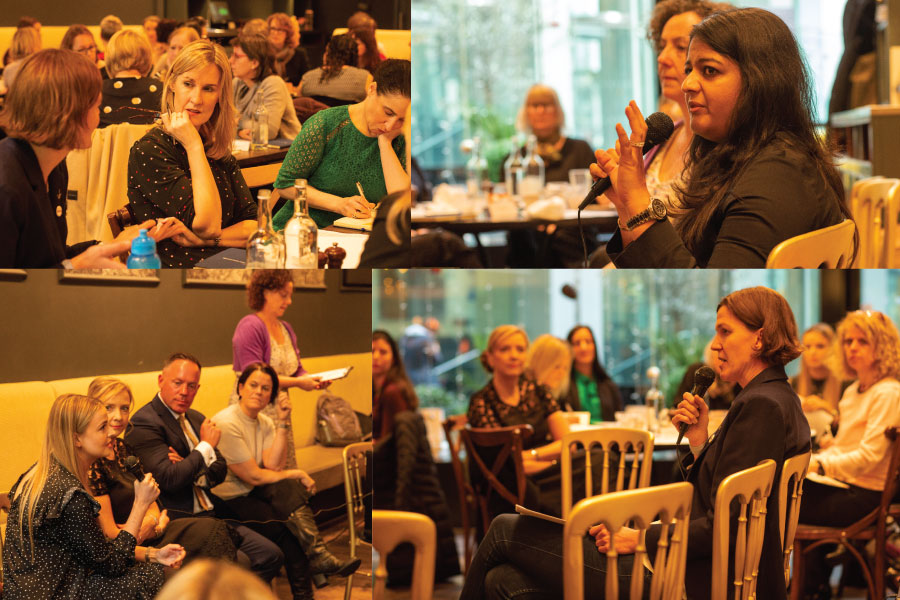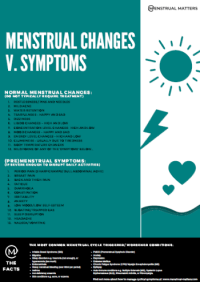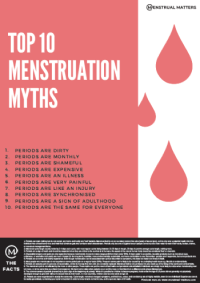Women's health: the last workplace taboo

Yet change is on the horizon. There is growing acknowledgement that yes, the female body is different, and that means that sometimes women need small adjustments to make their working lives easier. Without this recognition, organisations risk isolating and losing talented women.
Mind the gap
REBA’s Women’s Health in the Workplace event in association with AXA PPP Healthcare brought together academics, employers and organisations from the charity sector to discuss the importance of recognising and supporting female employees’ health.
At a fundamental level, however, before even considering how to address women’s health in the workplace, is the issue of unconscious bias. Sally King, founder of Menstrual Matters, highlighted that from a young age it is instilled in us that women have different bodies and that those differences shouldn’t be talked about. In order to tackle this we need to address the huge knowledge gap around female health and wellbeing.
This gap in menstrual health knowledge – taking account of what women experience throughout the course of their lives, how they can be affected, what treatments and support is available to them if they are the minority who are negatively impacted – is applicable to both men and women. King highlighted that there is even a lack of specialist knowledge among medical professionals, especially GPs.
Part of the answer to tackle this lack of understanding about women’s health, and the consequential bias, is to increase the education around it.
For instance, it is often wrongly assumed that women take more sick days than men. However, 2016/17 sickness absence figures from the Office for National Statistics show that women only take 0.9% more sick days than men. Much of this can be attributed to other factors, such as being a single parent, caring responsibilities, low pay and sector-specific reasons. More striking is the fact that absence increases with age for both men and women.
By tackling myths around menstrual health employers can start to create an inclusive culture that overcomes societal bias.
Men want to know too
It seems a fairly obvious statement to make, but men need and want to know more about women’s health. In the workplace men are managers and colleagues, while at home they are partners, fathers, uncles, brothers and sons. And so they too have a vested interest in ensuring that they can understand women’s needs and how to address them in a sensitive way.
At work the conversation needs to happen on two levels, women must feel heard and managers must be equipped to provide support. By increasing the knowledge and understanding around women’s health concerns, managers can be better at their roles, while also creating an inclusive culture that encourages people to be open about their health, regardless of the concern or their gender.
A key factor in helping to achieve this was seen to be the need for senior leader advocates. Much like we’ve seen with mental health, the importance of having leaders talk about women’s health cannot be underestimated in helping to normalise discussions.

Diversity and Inclusion
Workplaces so often focus on attracting younger millennial and gen Z employees that it is often the case that older employees can feel excluded.
In the context of menopause, the fact that some businesses are failing to recognise and include older women in their diversity and inclusion policies is a key concern.
Employers need to think carefully about their diversity and inclusion policies to ensure that they are inclusive of young and old employees alike. By not including or failing to acknowledge age-related conditions, such as menopause, businesses are making conversations about women’s health more difficult.
Gender-specific policies
Shefali Gera, EMEA head of diversity & inclusion and wellness at Goldman Sachs, spoke at the women’s health event and outlined how her organisation is supporting women through its fertility and parental policies.
New benefits introduced by the organisation include egg retrieval and donation, adoption and surrogacy stipends and four weeks of paid family leave to care for ill family members. In addition, it has introduced parity across its parental leave, entitling parents to 20 weeks’ paid leave, regardless of gender and caregiver status.
Although some of these policies are clearly for women, the introduction of a gender-neutral parental policy and paid family leave is a big step forward in helping to support women’s careers by making parental responsibilities more equal. This, in turn, should have a positive impact on men who want to take a more active role in raising their child, and for women by helping to narrow the gender pay gap.
Women’s health issues don’t just include fertility and other child-related conditions. It can also include Endometriosis – which affects one in 10 women of reproductive age and causes painful and/or heavy periods – and menopause. Creating a separate women’s health policy – or one that is directly related to one of these concerns – is not necessarily the answer. In fact, separate women’s policies can isolate women further by inadvertently highlighting their differences and making them ‘other’.
Instead, one of the best things that employers can do is to create policies that are fully inclusive and flexible.
A flexible working policy for all is a classic example. This policy can apply to all staff and is applicable to any number of scenarios, from someone needing to start and finish early to do some volunteering, to someone compressing their hours to help out an elderly relative. For women experiencing menopausal symptoms or having to attend fertility appointments, the flexibility allows them to get to work when they can without added pressure.
By making the workplace suitable for all, women’s health initiatives can be integrated without unintentionally reinforcing gender myths.
What employers can do to help
REBA’s breakfast event finished with a panel discussion featuring Dr Shaun Davis, global director of safety, health, wellbeing & sustainability at Royal Mail; Vicky Rose, head of HR operations and Eleanor Smith, reward, benefits & wellbeing advisor, both from Norton Rose Fulbright; and Theresa Winters, people insight lead at Santander UK. They discussed how they were supporting female talent through their wellbeing strategies.
They highlighted that women want to be at work, they may just need small adjustments to help them. This can be anything from flexible working, through to repurposing the first aid room to provide a safe space for women to collect themselves. They also highlighted the need for education for both women and their managers to encourage the confidence to have conversations around women’s health.
The key message to come out of REBA’s Women’s Health in the Workplace event is the need to create diverse and inclusive workplaces that are transparent and open to break down this workplace taboo. Only by doing this can employers encourage conversations about menstruation, fertility and menopause, without embarrassment.
The author is Dawn Lewis, content editor at REBA.
If you would like to be invited to future REBA breakfast events please contact [email protected]
Further reading
Top tips on supporting women’s health in the workplace
RebaLINK: fertility treatment policies
LinkedIn's senior HR director for EMEA & LATAM urges employers to think holistically about fertility
A spotlight on women’s wellbeing
Videos
Theresa Winters of Santander UK on its approach to supporting women going through menopause
Kim Schweitzer from IHS Markit shares her experience of menopause and the impact it had at work
Chris Carter from NTT Data on how women’s health in the workplace is evolving
Resources

https://www.menstrual-matters.com/blog/changes-v-symptoms/

https://www.menstrual-matters.com/blog/top-10-period-myths/
In partnership with AXA Health
At AXA Health, we've been a trusted provider of quality healthcare for over 75 years.







